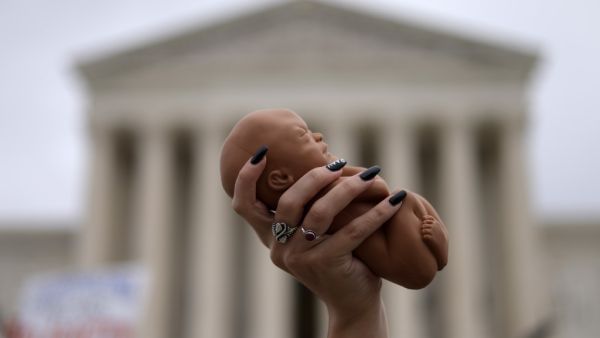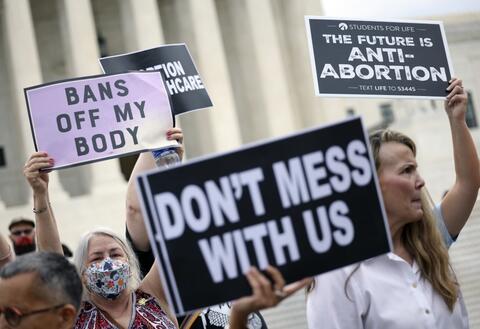The Oklahoma Supreme Court has temporarily stopped 3 anti-abortion laws that would have placed wide-ranging restrictions on the medical procedure from being enacted month.
The court voted 5-4 to block the laws, which were to go into effect on Nov. 1, as they are litigated.
INBOX: The Oklahoma Supreme Court agreed to temporarily block three anti-abortion laws from taking effect next week after a district court already agreed to block two other anti-abortion laws pending ongoing litigation. pic.twitter.com/U0R0OJO1FC
— Carmen Forman (@CarmenMForman) October 25, 2021
Abortion providers and advocates have warned the laws would devastate abortion access in Oklahoma as one would bar all medical professionals aside from board-certified obstetricians and gynaecologists from performing abortions, which would have halved the number of abortion providers in the state.
The other two laws would impose restrictions such as an ultrasound requirement on patients and the need for them to make two healthcare appointments separated by at least 72 hours before the medical procedure could be performed.
"The Oklahoma Supreme Court recognized that these laws would cause irreparable harm to Oklahomans," Nancy Northup, president and chief executive of the Center for Reproductive Rights, said in a statement. "All of these laws have the same goal: to make it harder to get an abortion in Oklahoma. We will continue to fight in court to ensure these laws are struck down for good."
The temporary injunction comes in a lawsuit filed against the state in early September by the Center for Reproductive Rights, Planned Parenthood Federation of America and other abortion rights groups and providers.
The ruling was made three weeks after a lower court blocked two other anti-abortions laws but allowed the three halted Monday to go forward.
Republican-led states have so far this year introduced 561 abortion restrictions including 165 abortion bans in 47 states with more than 80 having been enacted, according to the Guttmacher Institute.
In Texas, the nation's most restrictive abortion ban went into effect Sept. 1, prohibiting the medical procedure after fetal cardiac activity is detected, which occurs usually around the sixth week of a pregnancy and before most people know they are pregnant. The law is being challenged by the Justice Department as unconstitutional.
Thrilled that Oklahoma's Court ruled in favor of science by blocking 3 anti-abortion laws set to take effect on Nov. 1st!
— Ushma Upadhyay, PhD, MPH (@UshmaU) October 26, 2021
I was honored for the opportunity to testify in this case sharing the latest medical evidence. https://t.co/pd7Vh8o2VW
The Guttmacher Institute said the state's restriction has increased the distance a person in Texas has to drive to reach an abortion provider from 17 miles to 247 miles.
Abortion provider Trust Women Oklahoma City has said in court documents that it has experienced "a dramatic increase" in the number of patients from Texas since Sept. 1.
"[T]he clinic's call volume has more than doubled from approximately 15 patient appointment calls per day to 30 to 40," it said. "About two-thirds of our patient appointment calls now come from Texas patients seeking abortions that are unavailable throughout their home state."
This article has been adapted from its original source.










